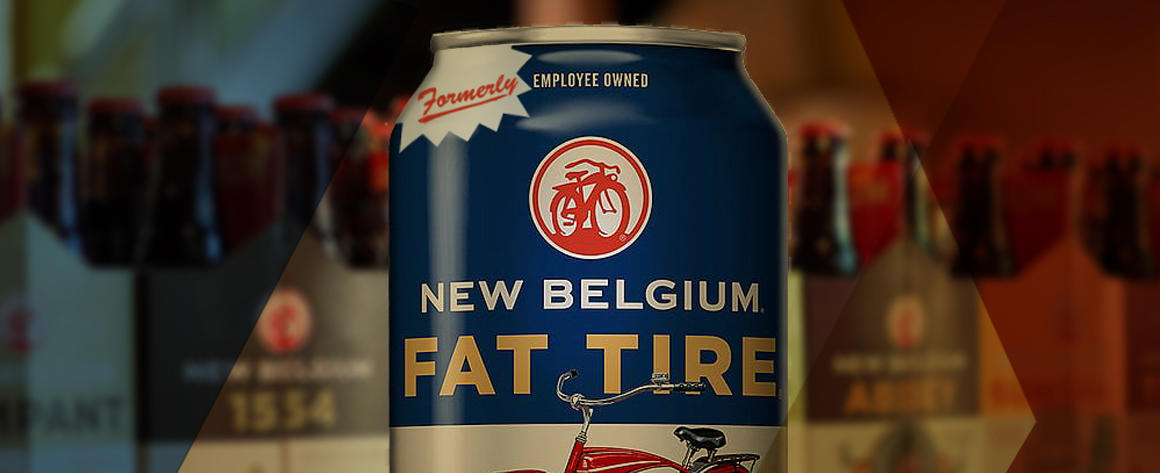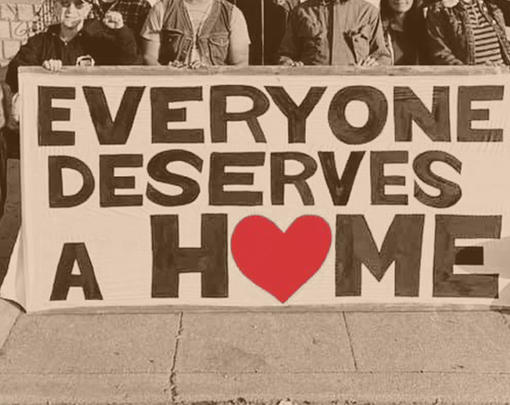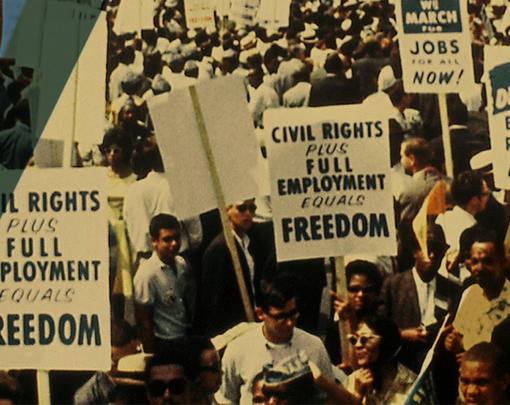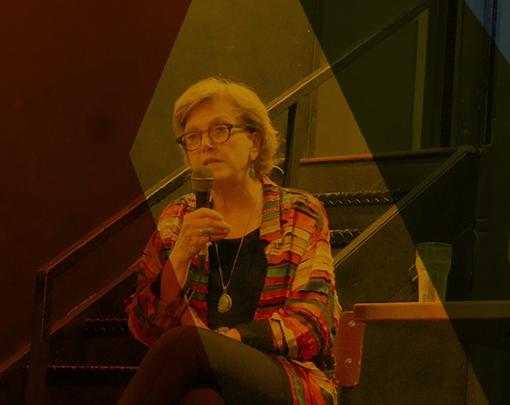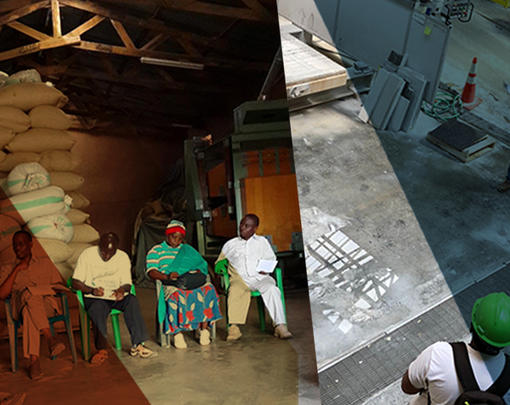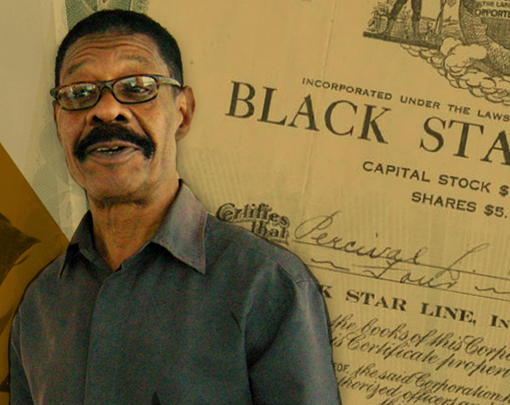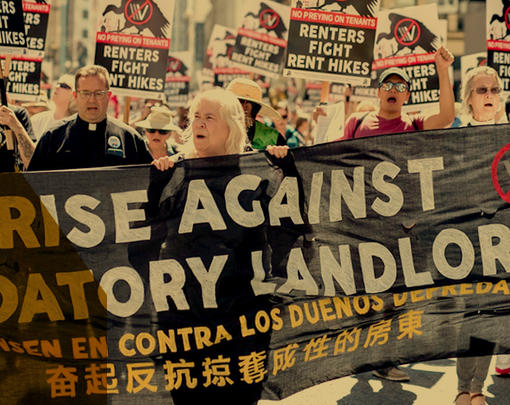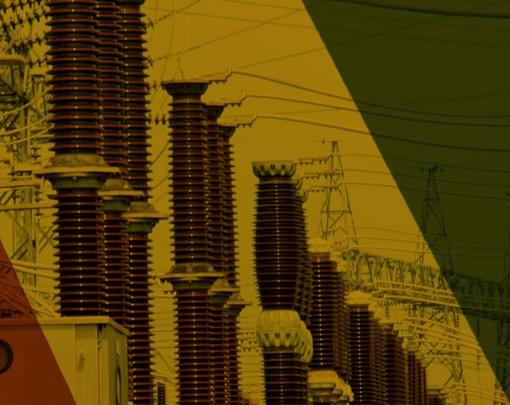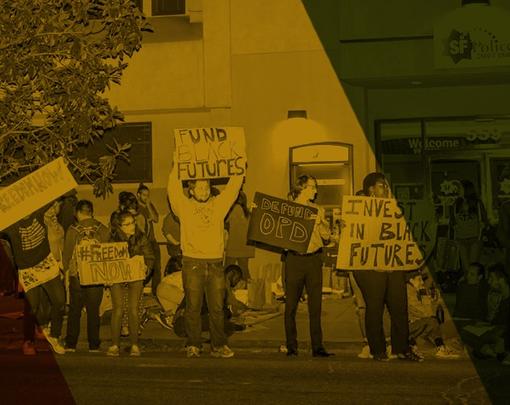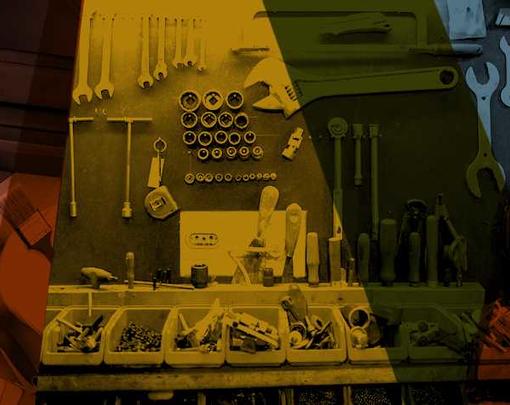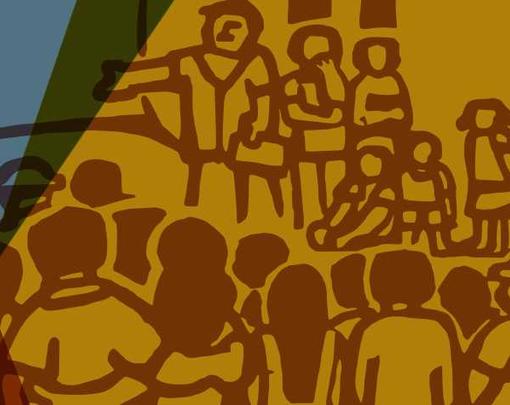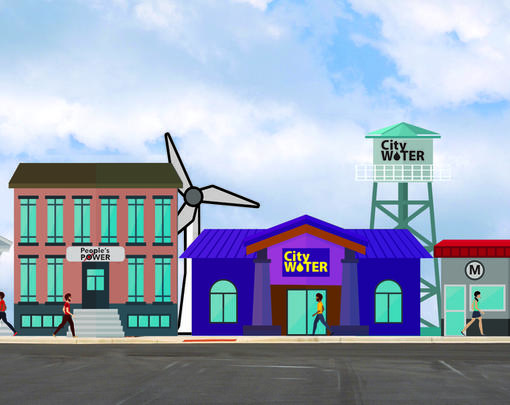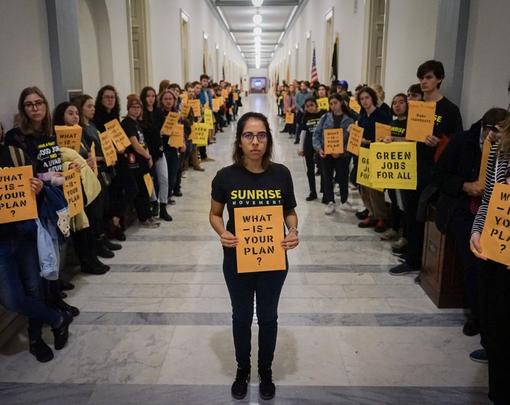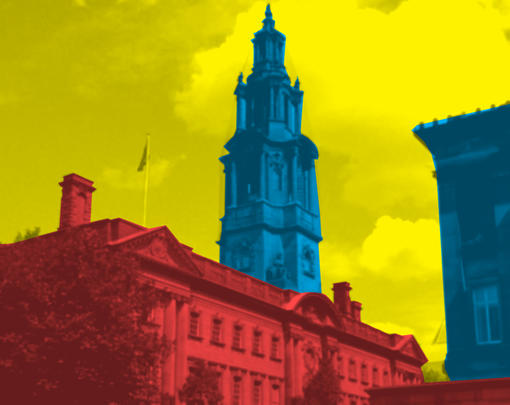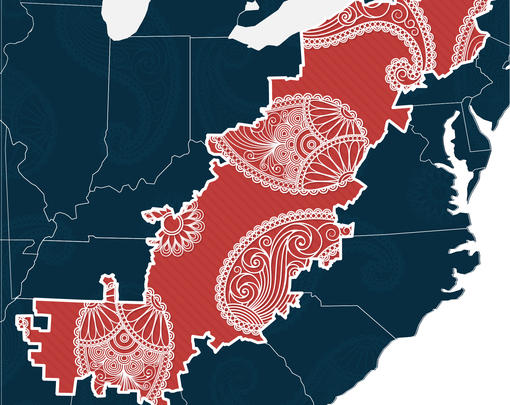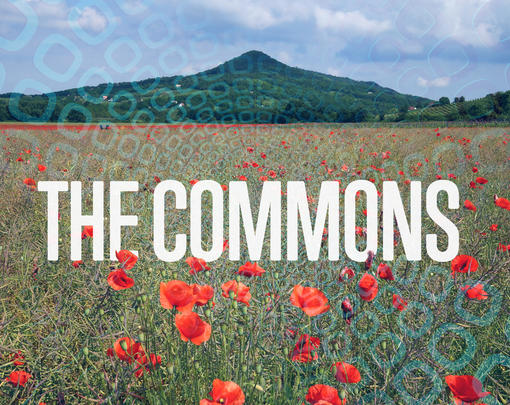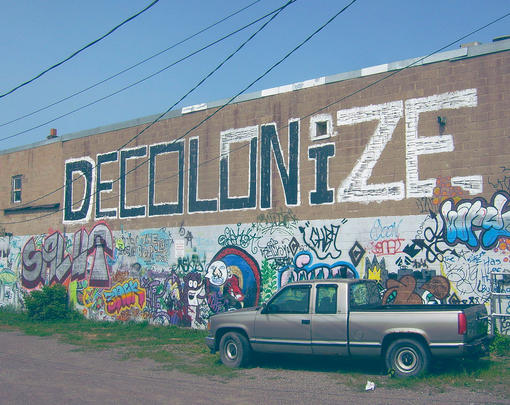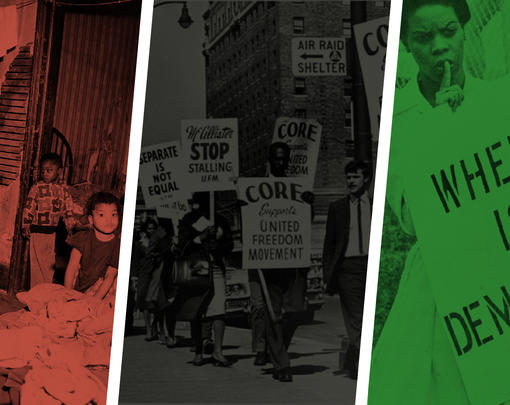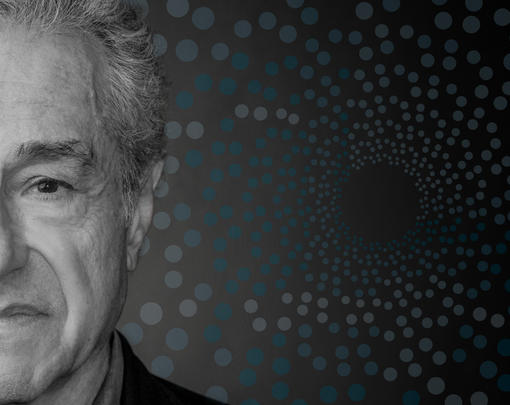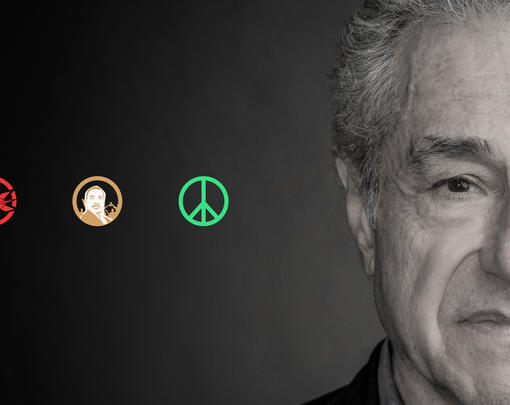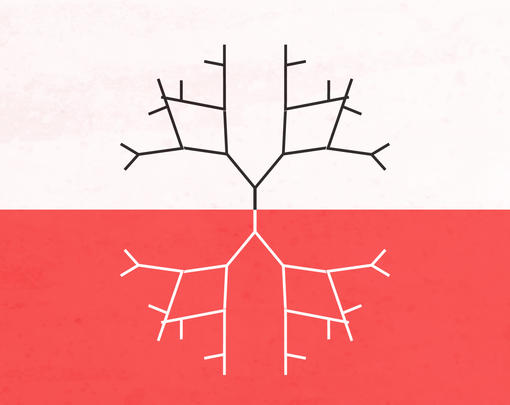Isaiah J. Poole: Welcome to the Next System Podcast. I’m Isaiah J. Poole. For people who believe that employee ownership is a central element of a new, more equitable economy, New Belgium Brewing was held up as a shining example of what could be possible. A national-scale beer company, 100% owned by employees and committed to a set of ethical business practices that set it apart from the corporate conglomerates that dominate the beer industry. That is, until it was snapped up in November by one of those conglomerates, Kirin Brewing, which not only markets dozens of beer brands in Asia and Australia but is a part-owner of the Brooklyn Brewery brand here in the United States.
That sale has sparked some serious soul-searching among employee ownership advocates: about the specific form of ownership that New Belgium was under, about how to maintain the structures and values of employee ownership as a company gets larger, and frankly, whether fighting for employee ownership is beside the point if we’re not moving bigger system-level changes in how the broader economy works. The hub of that debate was at the blog hosted by the organization Fifty by Fifty, a project of the Democracy Collaborative that has a goal of creating 50 million employee-owners by the year 2050. Jessica Rose is a co-founder of Fifty by Fifty and brought together a number of leaders to talk about these broader questions raised by the New Belgium sale. She’s agreed to join us to explain what happened and why it’s important. Jessica, welcome to the program.
Jessica Rose: Thank you, Isaiah, it’s such a pleasure to be with you.
Isaiah J. Poole: Well, first of all, can you just briefly explain what this New Belgium Brewing situation was, and about the sale?
Jessica Rose: New Belgium was widely known in the employee ownership movement and in circles that promote mission-led businesses as a shining example that shaped an entire industry. New Belgium started as a privately owned firm several decades ago, and their founder Kim Jordan converted the company to employee ownership as an expression of her values, and the type of company that she wanted New Belgium to be during and after she had her tenure with the firm. But in December it was announced that New Belgium Brewery would be acquired by the Japanese conglomerate Kirin Holdings, and this raised a lot of questions for folks in the movement.
It was difficult for a lot of us to come down on what this meant for our work. You know, on one hand, was it a success? And when you look at the outcome to the individual worker-owners of New Belgium Brewery, who ultimately approved the sale, as many as 300 of those workers are going to net $100,000 or more from this sale in retirement savings, and that wouldn’t have been possible without this event. And it’s also true that New Belgium might not have even been able to continue to operate in this competitive market or to grow any further without the sale. But the sale does mean the end of employee ownership at New Belgium. It means that the firm will now be 100% owned by Kirin and that many of the economic and participatory structures that employees benefited from at New Belgium will sunset out.
Isaiah J. Poole: Can you explain what the specific employee ownership structure was at New Belgium, and how it worked?
Jessica Rose: New Belgium began as a family-owned, founder-owned firm. Its founder and CEO Kim Jordan and her family were the owners. Over time they began to sell portions of the business to the employees of the New Belgium Brewery through a vehicle that’s called an employee stock ownership plan, which we abbreviate as ESOP for short.
In an ESOP, employees aren’t direct stockholders. They’re not owning shares of the corporation, but rather shares of the corporation are held in trust, in an ESOP trust, and then the employees are beneficiaries of that trust. So as the company generates profit, it pays a portion of those profits into the trust. Employees, when they leave the firm, for example at retirement, are paid out their portion of the balance of the trust. So it’s a form of employee ownership that’s somewhat indirect but economically very meaningful.
Up until 2012, employees of New Belgium owned 41% of the company through this vehicle, but in 2013, the employees bought 100% through the ESOP, and that firm has been 100% employee-owned since that time.
Isaiah J. Poole: So why should Joe and Jane Sixpack care about any of this?
Jessica Rose: (laughs) Well, Joe and Jane Sixpack is a clever way to talk about it, because I think that one of the things that makes New Belgium such a compelling story is that nearly everybody I’ve ever met has enjoyed a Fat Tire Ale, which was New Belgium’s sort of signature product. So New Belgium really was a household name, a household brand. I spend a lot of time as I travel around the country sharing about the transformative power of employee ownership, and how just by changing the ownership structure of a firm, and nothing else about the business model, you can have materially different outcomes for the folks that work in those businesses.
When I share about that, I find that it’s not all that hard for folks to fall in love when they hear about the promise of this model. It’s demonstrated, it’s proven. It’s a common-sense pathway to reduce inequality and keep jobs at home, and rebuild the middle class. It’s got a rare and practical and bipartisan appeal that sounds almost too good to be true. So the question that I get asked, over and over, when I’m out on the road is, “Great, it sounds really good, but does it really work?” And for me, the answer is, the only thing that can truly prove the efficacy of the model are examples of real businesses at scale that are doing things the right way, that are doing right by their workers in this way and succeeding in the marketplace as a result. So I really love sharing the stories of great companies that have done that. There are a lot to draw on.
Isaiah, you shared earlier that you’ve enjoyed lunch from Wawa convenience stores today, which is owned by an ESOP. There’s also companies like Equal Exchange, where I buy coffee from in the grocery store, or Recology, which processes waste for the Bay Area at scale. All of these are examples of where employee ownership structures are part of a broader expression of corporate values and corporate social mission. So it’s consistently exciting when I see people’s eyes light up with surprise to learn that these major companies that they’ve supported are owned by the people that work there, and New Belgium was one of my favorite to talk about because it was so well-known and so well-loved, and really so hip, and had shaped an entire industry. When people would hear that there were over 700 employees generating hundreds of millions of revenue, and that the firm was 100% owned by the people that produced each and every bottle of craft beer that came off the line, it really made an impact.
So because of that success, like a lot of my peers, I felt a sense of loss. I think maybe even some out there, you know, Joe and Jane Sixpack in Consumerland, felt a sense of loss when we woke up to read about the acquisition by Kirin
Isaiah J. Poole: Now we will hear from two people who have different perspectives on the sale of New Belgium Brewing and what it means.
Jason Wiener is president of Jason Wiener|p.c. The firm provides legal and business consulting services to entrepreneurs building social mission enterprises, including assisting companies that wish to democratize ownership and governance structures.
Camille Kerr is the founder of Upside Down Consulting, which specializes in developing innovative worker-centered legal structures, cooperative development in under-resourced communities, policy advocacy and drafting, and supporting existing businesses to become worker-owned.
We first asked each of them to distill the arguments they made on fiftybyfifty.org.
Jason, your article said that there were things to be proud and thankful for in the sale of New Belgium to Kirin. What are those?
Jason Wiener: My premise is that New Belgium Brewing, while it started out as a family operation, became employee-owned several years after it was formed through a management ownership structure, and then later through a partial ESOP [employee stock ownership plan]. Ultimately, I think in 2012 or ‘13, becoming 100% ESOP.
Through the lens of the business being owned by an employee stock ownership plan, I assessed the various impacts of the sale to a corporate owner, Kirin, which is a subsidiary of an even larger food and beverage group. And in my assessment, New Belgium Brewing was never truly employee-owned in the traditional sense that the workers didn’t have the full faculties to control the enterprise. They had a beneficial interest in the profit and appreciation of the underlying value of the business but had no legally enforceable direct control over the business. They couldn’t force the board to accept a sale offer, they couldn’t remove directors. They at best had an indirect route to do that through the trustee of the trust, but even that would have been a tenuous maneuver.
So, I contextualized my assessment within the context of their being several different options for employee ownership, and given New Belgium’s structure as an ESOP, I think this has largely satisfied its purpose, which was to create wealth in a tax-advantaged vehicle for its past and current owners. And now it has the capacity to send hundreds of now trained skilled and socially conscious workers out into the economy, some to start new businesses, others to invest in businesses, but all with an awakened sense of what’s possible in American enterprise.
But I’ve never held New Belgium to the standard of creating perpetual wealth, or perpetual control for the workers. They would have had to organize under a different structure to accomplish that, and that was ostensibly never part of their purpose or their structure to begin with. So by all accounts, given the structure they chose, I believe that New Belgium satisfied its fundamental purpose, and should be viewed as such as a success story within a larger system that we can critique, and today, we hopefully will. But it operated in a small sliver of the economy, and I don’t think it’s fair to impose on New Belgium or the ESOP structure all the various critiques that we might have of American capitalism. But within its small corner of the economy, New Belgium is still a shining light for what’s possible when a progressive business owner decides to transfer ownership to an ESOP for which the benefits accrue to their workers. And for that, we still have a lot to be thankful for. Of course, there are lots of facts to unfold. We just know that movie hasn’t reached its final chapter yet.
Isaiah J. Poole: Camille Kerr, you did not think that the sale of New Belgium Brewing was such a shining light. Your critique was quite harsh. Why?
Camille Kerr: I don’t think I had a harsh critique of New Belgium. I don’t disagree with what Jason was saying about the fact that New Belgium itself shouldn’t be held to the standard of being something that it was never structured to be. My critique wasn’t actually of New Belgium. It was of the focus of my fellow service providers on this seemingly, to me, narrower discussion of types of structures, and which ones are good for what, without diving into that larger discussion of how is it that we are thinking about this particular moment, and the lessons of New Belgium in the context of how we’re building for the next economy, the next system.
And it did feel like a little bit, a lot of the debate turned into a co-op versus ESOP; what’s the better structure? And how do we have structures that are lasting longer, instead of thinking about, okay, this is another reminder that regardless of the pilots and the things that we put on high, are we moving towards something that’s fundamentally different, that wasn’t designed to maintain the property rights of people with power and wealth? And that’s what our structure and our system were designed for. And yes, within that system, we’ve innovated other types of structures where we can better live more collective values, more human-centered, life-centered values, but how are we not just tinkering with projects, but laying the foundation for that larger systems change?
But some of what Jason is saying, I absolutely agree with. It’s not just perpetual pilots that we need to help change the narrative, and the narrative changes is one of the major pieces of how we build a new system; we open people’s imaginations to what else could exist. This is a man-made system, and another man-made system could exist. So changing the narrative is a big part of that, but so is skill-building, and he’s right that regardless of the continued existence of New Belgium Brewing as an employee-owned company with engaged workers, those workers built skills, and skills built to work together, to define the future of a company jointly, and cooperatively, even though they weren’t in a cooperative structure, that skill-building is critical, as well as the narrative change, as well as power and movement building for the communities most affected by our current system.
As innovative structures, these are all pieces of the larger puzzle. My critique was that we aren’t talking about that larger aim as much. As I read through the responses of my colleagues, I wanted to hear the debate of like, okay, what does this mean for how we can build better together towards what we want to see, which I think we have a joint vision of a fundamentally different system.
Isaiah J. Poole: So let me ask Jason about something that Camille wrote in her piece, and what she said that, the end goal should not be a slightly bigger part of an extractive economy. What you said earlier about the ESOP structure was actually very Illuminating to people who basically think of ESOP as a very Nirvana-like structure for empowering workers, and making sure they share an equitable amount of the wealth of a company. And as you pointed out, these are not permanent structures.
So, what about her argument that this shouldn’t be more than a way station to something more transformative?
Jason Wiener: For me, this reminds me of 12th-grade study of Newton’s laws of physics. For every action, there is an equal and opposite reaction, and I think that, as intellectually exciting as it is to imagine an alternate economy, it’s important that we ground such a thought experiment in the reality of today, given that we can no more control the circumstances for another economy than we can control the instances or examples that we study in today’s economy, and by that I mean that the actors within the cases we study, aren’t always thinking about the larger system change. We can’t really practically reasonably hold them responsible for their influence by or to an alternate system, or the current system.
And so for me, this study is one of assessing what’s moving us on the progression to a more equitable, just, and inclusive future, without thinking that we can plan for it, or without envisioning a wholesale new system.
I had the privilege of spending ten days in Cuba to study the cooperative sector. And of course, the first observation is that the fundamentals of the economy are categorically different than they are here in the US, and are also anathema to American capitalism, for better or for worse.
And so, the outcomes of state planning leads to a very different canvas for design, as well as a very different way and metric system for studying outcomes. And I don’t know that anyone could envision the fundamental levers of a different system, let alone how we get there. So for me, this is a study in realistic alternatives. And given the circumstances and options at the time New Belgium made its first transition to an ESOP, it did so within a capitalistic system, driven by market forces, competition, the need to access capital, hire workers, and we have to appreciate those factors because the company, and the business, and its outcomes, and its social value, this conversation would not happen but for the combination and culmination of all those factors at the time Kim Jordan and her husband made the decision to sell to the ESOP.
So we have to appreciate I think, the practical underpinnings of the decision, the context in which the decisions and actions were taken, as well as the context around all the changes since then. And I do believe that this ESOP in particular, fulfilling its fundamental purpose and setting 300 to 400 more well-endowed social entrepreneurs into the economy, is a net positive, if we are measuring progress toward a more equitable and inclusive future, compared to if New Belgium had never existed, or never existed as an ESOP. We just can’t know what the story would have looked like or been like under a different system, or if we were looking at the dawn of a whole other system. I love to think about that, but we have to ground ourselves in the complex system in which we operate currently. And I think given all those considerations, New Belgium happens to be one fairly rich study that has rich fodder for both the general and the specific analysis.
Isaiah J. Poole: Let me ask Camille about this reality argument, and whether at the end of the day, do you think that ESOPs are something that’s worth fighting for, or something that’s not worth our energy?
Camille Kerr: I guess one of the differences that I’m hearing quite clearly is, I think that as a field that believes that economic democracy is a fundamentally fair way to organize our economic system, that we are the ones responsible for building that next system. And I have it in sight, and I don’t have it in sight in my lifetime necessarily, but I have it in sight as to what the goal is, as shifting towards what we believe in.
And the question of whether ESOPs are a valuable tool, it’s hard. They’re market-based, and the valuation over time is going to lead to similar outcomes that we saw in New Belgium time over time. But like I said, I mean, in the process, do we build wealth for people who are behind? Absolutely. Do we build skills for people, and open people’s eyes to alternative structures? I mean, anything that opens people’s eyes to what can be is worth keeping, unless it’s a mechanism to stop people from thinking even—that’s where I have some issue. If you’re creating structures that will placate people with the current system so it can continue to extract and to demolish our environment, and to continue on this path we’ve continued on, then I don’t want those Band-Aids that keep us going on the same path longer.
But it’s kind of a fuzzy and hard line between things that we’re using as stepping stones to a better economy, versus those things that are leading us to keep the one that we have.
I’m going to keep working with ESOPs when they make sense. Those tax advantages for certain clients are hard to pass up, given that you can create a lot of wealth for folks. So, I’m not writing off ESOPs, and I’m not also writing off New Belgium’s choices. I don’t disagree with Jason that they ended up on the end of the path that they started on, and it’s not a bad one. But I do think that we as practitioners in the economic democracy field have a responsibility to start looking at how we chart a path towards these fundamental changes.
Isaiah J. Poole: I do have a question about how we could improve the ESOP structure. Michael Keeling, who was the former president of the ESOP Association, looked at 600 ESOPs around the country since 1991, and he notes that half of them are no longer ESOPs. Five of the seven companies that in the 1990s won ESOP of the Year awards are no longer ESOPs. They sort of underscore the point you made earlier Jason, that these ESOPs tend not to be permanent. They either get so big and their stock value gets so rich that the temptation to sell becomes overwhelming, or they just simply are not doing well enough to sustain the structure, and so those go away. So, it looks like a damned-if-you-do, damned-if-you-don’t situation, and I wonder how you break out of that.
Jason Wiener: First off, I want to honor Camille’s point that we can’t just rest on the fundamental power structure as it exists currently. So, if all we’re talking about doing is tweaking the margins, we’re not really vindicating the rights and addressing the disabuses of the current system on people of color, women, oppressed populations, First Nations. We really do need to put those stories front and center, and in my view, assess the stories of the day as the facts present themselves.
And I think to a large extent, we can’t let the New Belgium story lie on speculation any more than we can just to say that the story is over. I think we have to hold their feet to the fire and judge their current owners by what happens, by the facts. But to answer your question, ESOPs are, like Camille said, our current economic structure is created by men, largely for the worse. So too are ESOP instances, so too are the business structures, and so too is the law that created them, and the people who govern them and control them.
So, I think there are a couple of interventions that can loosen the noose of capitalistic forces. One is that ERISA currently, while it doesn’t require trustees to maximize share value…
Isaiah J. Poole: And let me stop you for a second. ERISA is what?
Jason Wiener: The Employee Retirement Income Security Act, which is a piece of federal legislation that was passed in the mid-1970s that governed retirement plans in the way that they were administered; employment-based retirement plans. And ESOPs were nested within the ERISA framework when they were created and adopted into federal law. They are governed by ERISA, which has made them a fairly rigid structure heavily regulated by the Department of Labor and the IRS.
One of the sometimes misunderstood legal requirements is that the trustee is obligated like a corporate director to maximize share value when there are competing financial offers to buy a company. Their legal obligation doesn’t quite rise to that level, but it’s close, and they are judged by what’s known as the Fiduciary Duty Standard, which is the highest legal obligation recognized by the law, which for a trustee, means that they have to put the interests of the trust and its beneficiaries ahead of all other interests. That doesn’t always mean that the ESOP trustee has to accept the highest financial offer, but it often means that in practice.
And so, I think there are two interventions that I think would help. One is, to adjust the legal standard or the guidance by which a trustee carries out his or her duty, to allow for multi-stakeholder and multi-interest consideration along the lines of what the public benefit corporate standard is, and we can go into those specifics.
The second is, to intervene in the training and the market for trustee services. Trustees operate usually within trust companies or banks. They operate usually according to the constraints of their insurance provider. Since there’s so much liability, their insurance is rather expensive, and I think that there could be some intervention at the point of their insurance, or at the point of their training, to educate, and train, and give them greater comfort that there’s a little bit more flexibility than they might undertake in practice.
Camille Kerr: Can I add to that? I think that one of the pieces of the unsustainability of ESOPs isn’t just the fiduciary decision-making, although that is a big one. But also, I mean, creating continuous liquidity for owners at market rates year over year, because participants in the plan have a put option for the company, so when they leave or retire, they can get their money out.
That means unlike with other types of investors where you have like a normal horizon, and then you have one large liquidity event, these companies have to create continuous liquidity for their shares, and pay people out year over year. And if there’s a retirement chunk, if they know a number of their managers are reaching a certain age, and they’re going to retire in a chunk, those are the kinds of events that require a sale to create the liquidity needed to pay these owners out.
I think that in terms of the types of long-term structures, I mean, of course, I think worker cooperatives, if we can unlock capital sources that are aligned, would grow and make sense. And also, look to the UK structures for non-market-based employee ownership trusts, where the shares are held in trust indefinitely. Workers receive dividends, but not the underlying share value, and that makes the company more long-term sustainable.
And I hear some of my mentors and previous employers in my head saying like, “Oh, well, they’re not getting the benefit of ownership then, the way an entrepreneur gets.” And I think that very dynamic though, like Ray Rosen was like, “This is the benefit of ownership, you get that multiple.” These workers get that multiple. They get the market value of the company, and that’s what the benefit is. But that same benefit is what makes these structures unsustainable.
So I think that alternative structures that are both a little bit more scalable than the way that worker cooperatives have operated in the US today, I think we can find solutions to scale those up too. But having additional structures like the UK EOT, that would be tax-advantaged, would be a great solution as well.
Isaiah J. Poole: So, both of you have offered a lot of great detail, some of it a little complex.
Camille Kerr: Sorry, we’re lawyers.
Isaiah J. Poole: So I’m going to ask each of you to take 20 seconds and imagine this scenario: A presidential candidate is standing in front of you with a bottle of New Belgium beer. What would you tell that presidential candidate to do?
Jason Wiener: Drink it. It’s no less tasty than it was back in September. It stands for something that is important and deserves greater public awareness.
Isaiah J. Poole: Camille?
Camille Kerr: A presidential candidate with a bottle of New Belgium beer, I think I would talk to the president about something else. I would love it if we use money to build the next economy. Give grants to build new worker-owned companies that are led by marginalized populations. Resource the work of building this next economic system.
Isaiah J. Poole: Well, thank you very much, both of you, Jason Wiener and Camille Kerr.
Given the arguments by Camille Kerr, Jason Wiener, and some of the other people who wrote about this on FiftyByFifty.org, where do we go from here with this whole debate?
Jessica Rose: Yeah, well, that’s a great question, and I really think that depends on who we are in the “where do we go from here.” Camille and Jason’s insights highlight a question that’s, I think, inherent to all social impact work, which is: what is our job? What’s ours to do? What is the goal? Is it enough to make incremental change that benefits some, like the workers of New Belgium, who are going to have measurably different lives, whose families will have measurably different opportunities as a result of this? Or is it not enough? Do we need to shoot for the moon? And do we even need to agree on the answer to that to be working together in solidarity?
I think these questions are important, but unfortunately, they can sometimes create divisions among those who engage in movement work. One point of view is seen as too concessionary or not rigorous enough, you know, the idea of a sellout strategy. The other side is seen as impractical, too pie in the sky, and then there’s infighting. But the really beautiful thing is that these don’t need to be seen that way. We can recognize, as I know Camille and Jason do, that all people of the human family have a unique role to play.
I like to borrow here from the faith traditions that remind us that all people have unique gifts and talents, and all people are called to serve. By that token I would say that all people are called to the work of creating a more just economy, and by extension, to the work of promoting shared ownership of firms, and by extension that there is home in the employee ownership movement for many talents and many perspectives. It’s really up to an individual to determine with their conscience where in that work they’re called to give. It’s a righteous thing to devote one’s life and talent to addressing the question of how a political and economic question should be structured to maximize benefits to as many people as possible, but it’s also a righteous thing to devote one’s life and talent to serving the needs of families and workers now, right? Jesus said, “Feed my sheep.” People are hungry now, and it’s a righteous thing to try and meet that in a more immediate sense.
So if I have a talent for policy and advocacy work, or for inspiring others to the cause of racial and economic justice, and bringing others to the work, or if I have a talent for contemplating structural questions of how a society is set up to work, then great, I am welcome in this work. Or if I have a talent for business development, or marketing, or really creative corporate M&A legal work that can help create better quality jobs and wealth-building opportunities today, working within the current system, then great, I’m also welcome, right? I think the call is for individuals to first ask themselves where they locate themselves in the work and then resolve the vocational question of what is theirs to do. And second, for those who are working on the long-term systemic work and the incremental strategies to recognize that each is coming from a righteous place and to support one another in the sacred process of discerning what’s theirs to do, and then working together in the spirit of humility and solidarity as ultimately Jason and Camille have done and their comments demonstrate.
Isaiah J. Poole: I’m curious how this has altered your thinking in the last two or three months.
Jessica Rose: Great question. As I reflect on what it means to have a spirit of humility, when I read the contributions from the experts in our field on the meaning of New Belgium’s acquisition, I had to call myself into some humility and to really consider the depth of the insights and the differences that were expressed and to sit with what it meant for me and for my work and for where I wanted to locate myself. So I asked myself a lot of questions that were covered in my blog.
What does it say about the viability of market-based strategies like I promote that even the most integral moral commitment to worker equity ultimately couldn’t stand up to these market pressures that New Belgium faced, right? And is it responsible to advocate for public incentives and community investment like I do for a structure that’s so vulnerable to its own success? And is the outcome of the buyout a success story in which hundreds of rank and file workers now have a real future and a chance to benefit their families and communities, or is it merely a failure that illustrates the insurmountable gravitational pull of wealth concentration in the capitalist system? I had to sit with that.
But one thing I’m clear about for myself is that it’s not one or the other, it’s both. The incremental can lead to small steps taken now that can sum to the change we want to see if we keep our work located in the bigger vision. Right? So it’s not one or the other, it’s both. So I think Jason and Camille’s perspectives illustrate how through a dialogue we can keep ourselves accountable, we can keep ourselves working at the highest levels of efficacy and efficiency and we can make sure that we’re all moving in the same direction in a way that respects that each person has a unique role to play.
But one thing is for sure, and that’s that a US economy anchored in widespread employee ownership would represent a fundamentally different kind of economy than we have today, in which millions more families would enjoy greater financial stability, increased income, and greater retirement security. I think we owe an enormous debt of gratitude to Camille and Jason for helping us understand that better, and to Kim Jordan and the worker-owners of New Belgium for all the blood, sweat, and tears they devoted to demonstrating what that can look like when it works. And from here, it’s our turn. Now it’s our turn.
Isaiah J. Poole: Well, Jessica, thank you very much for all the work that you’ve done and for the dialogue that you’ve sparked.
Jessica Rose: Thank you, Isaiah. Such a pleasure to be with you.




